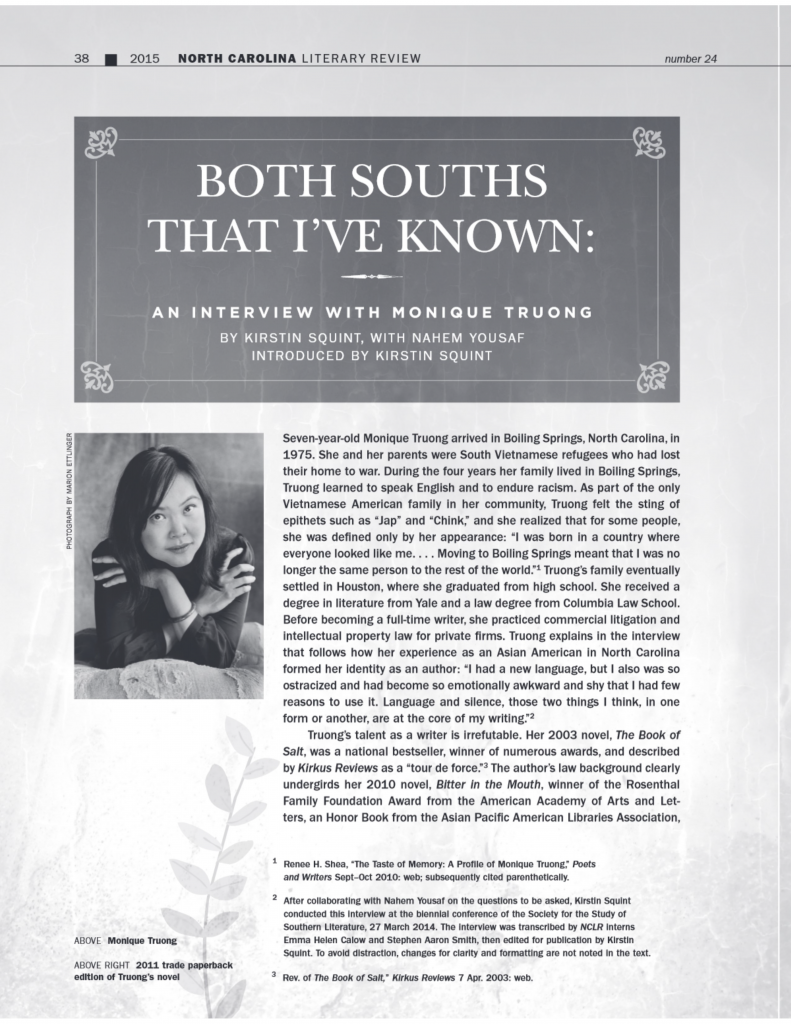Friday from the Archives: “Both Souths That I’ve Known” An Interview with Monique Truong by Kirstin Squint, with Nahem Yousaf, from NCLR Issue 24 (2015)
The Asian American Center and Frank B. Hanes Writer-in-Residence program are hosting a reading by Monique Truong, who is the 2023 Frank B. Hanes Writer-in-Residence, the Vietnamese American author of the bestselling, award-winning novels The Book of Salt, Bitter in the Mouth, and The Sweetest Fruits and the co-author of the forthcoming children’s picture book Mai’s Áo Dài. The reading is free and open to the public at Moeser Auditorium on the UNC-Chapel Hill campus on Tuesday, March 28th.
In our 2015 issue we published an interview between current Guest Feature Editor Professor Kirstin Squint and Truong from the 2014 Society for the Study of Southern Literature conference in Arlington, VA, at which Truong was a keynote speaker. The conference theme, “Other Souths: Approaches, Alliances, Antagonisms,” emphasized the organizers’ goal to “productively re-envision southern literatures, cultures, spaces, and histories.”
They discuss Truong’s youth in North Carolina, her research and writing processes, and how real-life happenings inform story characters. Identity is at the core of much of Truong’s work and of Southern literature. She takes to task the publishing industry for trying to pigeon-hole her writing identity, and by extension, readers’. She remarks, “I’m very comfortable saying this: I think that mainstream US publishing has very little faith in writers and in readers. They think that we are unable to exist in different realms, that we are simply one thing. Because I am Asian American, then I am an Asian American author and not a Southern writer.” Great literature should be widely read for this very reason: to experience another’s view and experience empathy and understanding.
They also touch on her then-current work on a new novel, what would become The Sweetest Fruits (reviewed in NCLR Online 2015). Truong reveals, “My two novels to date are undeniably food-centric or taste-centric. One of the lenses that I see the world through is my stomach. Lafcadio’s story is the flipside of food, which is hunger. Hunger is a wide-open word for me. Obviously, physical hunger, but I think for him it was also the hunger for a home, a place to feel at home, the hunger for a family.”
Read the whole interview in the 2015 issue featuring “NC Literature in a Global Context,” available on ProQuest. You can order the issue for your collection.
